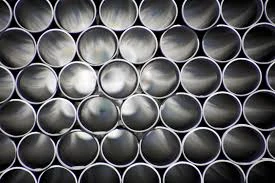
-
 Afrikaans
Afrikaans -
 Albanian
Albanian -
 Amharic
Amharic -
 Arabic
Arabic -
 Armenian
Armenian -
 Azerbaijani
Azerbaijani -
 Basque
Basque -
 Belarusian
Belarusian -
 Bengali
Bengali -
 Bosnian
Bosnian -
 Bulgarian
Bulgarian -
 Catalan
Catalan -
 Cebuano
Cebuano -
 China
China -
 China (Taiwan)
China (Taiwan) -
 Corsican
Corsican -
 Croatian
Croatian -
 Czech
Czech -
 Danish
Danish -
 Dutch
Dutch -
 English
English -
 Esperanto
Esperanto -
 Estonian
Estonian -
 Finnish
Finnish -
 French
French -
 Frisian
Frisian -
 Galician
Galician -
 Georgian
Georgian -
 German
German -
 Greek
Greek -
 Gujarati
Gujarati -
 Haitian Creole
Haitian Creole -
 hausa
hausa -
 hawaiian
hawaiian -
 Hebrew
Hebrew -
 Hindi
Hindi -
 Miao
Miao -
 Hungarian
Hungarian -
 Icelandic
Icelandic -
 igbo
igbo -
 Indonesian
Indonesian -
 irish
irish -
 Italian
Italian -
 Japanese
Japanese -
 Javanese
Javanese -
 Kannada
Kannada -
 kazakh
kazakh -
 Khmer
Khmer -
 Rwandese
Rwandese -
 Korean
Korean -
 Kurdish
Kurdish -
 Kyrgyz
Kyrgyz -
 Lao
Lao -
 Latin
Latin -
 Latvian
Latvian -
 Lithuanian
Lithuanian -
 Luxembourgish
Luxembourgish -
 Macedonian
Macedonian -
 Malgashi
Malgashi -
 Malay
Malay -
 Malayalam
Malayalam -
 Maltese
Maltese -
 Maori
Maori -
 Marathi
Marathi -
 Mongolian
Mongolian -
 Myanmar
Myanmar -
 Nepali
Nepali -
 Norwegian
Norwegian -
 Norwegian
Norwegian -
 Occitan
Occitan -
 Pashto
Pashto -
 Persian
Persian -
 Polish
Polish -
 Portuguese
Portuguese -
 Punjabi
Punjabi -
 Romanian
Romanian -
 Russian
Russian -
 Samoan
Samoan -
 Scottish Gaelic
Scottish Gaelic -
 Serbian
Serbian -
 Sesotho
Sesotho -
 Shona
Shona -
 Sindhi
Sindhi -
 Sinhala
Sinhala -
 Slovak
Slovak -
 Slovenian
Slovenian -
 Somali
Somali -
 Spanish
Spanish -
 Sundanese
Sundanese -
 Swahili
Swahili -
 Swedish
Swedish -
 Tagalog
Tagalog -
 Tajik
Tajik -
 Tamil
Tamil -
 Tatar
Tatar -
 Telugu
Telugu -
 Thai
Thai -
 Turkish
Turkish -
 Turkmen
Turkmen -
 Ukrainian
Ukrainian -
 Urdu
Urdu -
 Uighur
Uighur -
 Uzbek
Uzbek -
 Vietnamese
Vietnamese -
 Welsh
Welsh -
 Bantu
Bantu -
 Yiddish
Yiddish -
 Yoruba
Yoruba -
 Zulu
Zulu
High-Quality Fiberglass Vessels and Tanks for Industrial and Commercial Use
Fiberglass Vessels and Tanks A Comprehensive Overview
Fiberglass vessels and tanks have become increasingly popular in various industries, spanning marine applications to water storage solutions. Their unique properties make them a preferred choice for many applications, showcasing a blend of durability, lightweight characteristics, and resistance to corrosion.
Materials and Construction
Fiberglass, or glass-reinforced plastic (GRP), is composed of a polymer matrix that is reinforced with glass fibers. This combination results in a material that is not only lightweight but also incredibly strong, capable of withstanding harsh environmental conditions. The manufacturing process typically involves laying glass fibers in a mold and saturating them with resin. This method can be employed in various forms, including lamination, pultrusion, and infusion. The flexibility in design and production allows for the creation of custom shapes and sizes, catering to specific needs.
Advantages of Fiberglass Vessels and Tanks
1. Corrosion Resistance One of the most significant advantages of fiberglass is its resistance to corrosion. Unlike metal vessels, which can rust or corrode in the presence of moisture and other chemicals, fiberglass remains unaffected, making it ideal for storing chemicals, waste, and potable water.
2. Lightweight Fiberglass is much lighter than metal alternatives, which facilitates easier transportation and installation. This reduction in weight can also translate to lower shipping costs and less structural support required for installation.
3. Durability Fiberglass vessels are designed to withstand impact, UV radiation, and temperature fluctuations. They exhibit a longevity that often surpasses metal counterparts, reducing the need for frequent replacements and repairs.
fiberglass vessels and tanks

4. Cost-Effectiveness Although the initial investment in fiberglass tanks might be higher than that of traditional materials, the long-term savings associated with reduced maintenance, increased lifespan, and lower operational costs can result in significant overall savings.
5. Versatility Fiberglass tanks are used in various applications, from marine vessels like boats and yachts to industrial tanks for chemical storage and wastewater management. Their versatility makes them suitable for both recreational and commercial purposes.
Maintenance Considerations
While fiberglass vessels and tanks require less maintenance than metal alternatives, some care is still necessary to preserve their integrity. Regular inspections for cracks or surface damage are essential, as prolonged exposure to abrasive materials or chemicals can lead to degradation over time. Cleaning the surfaces to prevent algae or other biological growth is also recommended, especially for marine applications.
Environmental Impact
Fiberglass vessels can also contribute positively to sustainability efforts. Their longevity means fewer resources expended on replacements, and their recyclability at the end of their life cycle makes them an environmentally friendly option compared to materials that contribute to landfill waste.
Conclusion
In conclusion, fiberglass vessels and tanks offer an array of benefits that cater to the modern needs of industries reliant on durability, safety, and efficiency. With ongoing advancements in manufacturing techniques and materials science, the future of fiberglass in engineering and construction looks promising. Whether for marine use or industrial storage, fiberglass vessels and tanks stand out as a reliable choice, marrying practicality with innovation and sustainability.
Latest news
-
Exploring the Benefits of Top Hammer Drifter Rods for Enhanced Drilling PerformanceNewsJun.10,2025
-
High-Precision Fiberglass Winding Machine for GRP/FRP Pipe Production – Reliable & Efficient SolutionsNewsJun.10,2025
-
FRP Pipes & Fittings for Shipbuilding - Corrosion-Resistant & LightweightNewsJun.09,2025
-
Premium FRP Flooring Solutions Durable & Slip-ResistantNewsJun.09,2025
-
Premium Fiberglass Rectangular Tanks Durable & Lightweight SolutionNewsJun.09,2025
-
Tapered Drill String Design Guide Durable Performance & UsesNewsJun.09,2025









